Middle East
UN raises alarm as Israel keeps killing mostly women, children in Gaza | Israel-Palestine conflict News
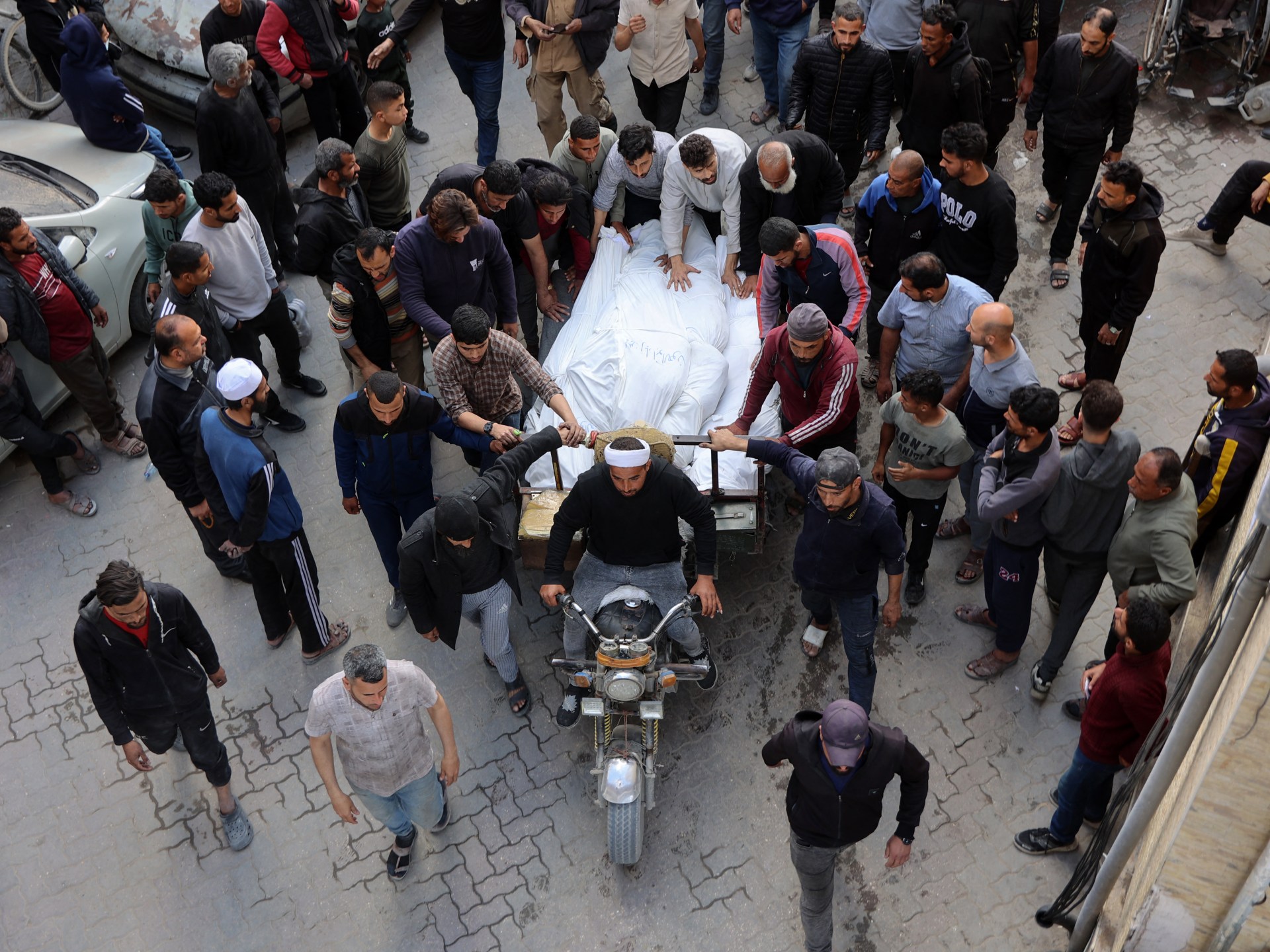
The United Nations has warned that the cumulative effect of Israel’s actions in Gaza is threatening “the future viability of Palestinians as a group”, as the most recent predawn strike killed at least 10 people, including seven children.
Ravina Shamdasani, spokeswoman for the UN High Commissioner for Human Rights, highlighted on Friday “the death, the destruction, the displacement, the denial of access to basic necessities within Gaza and the repeated suggestion that Gazans should leave the territory entirely”.
Shamdasani pointed in particular to the dire effect of Israel’s ongoing air attacks on civilians, lamenting that “a large percentage of fatalities are children and women.”
She told reporters that Israel had launched about 224 raids on residential buildings and tents housing displaced people between March 18 and April 9.
“In some 36 strikes about which the UN Human Rights Office corroborated information, the fatalities recorded so far were only women and children,” she said.
Shamdasani cited an April 6 strike on a residential building in Deir el-Balah belonging to the Abu Issa family, which reportedly killed one girl, four women and a four-year-old boy.

In the most recent Israeli air attack on Gaza, early dawn on Friday in Khan Younis, at least 10 people in one family were killed, including seven children. At least three other people were killed on Friday in other parts of Gaza.
Many people have been trapped under the rubble across Gaza, according to Al Jazeera’s Tareq Abu Azzoum, reporting from central Gaza’s Deir el-Balah.
“We have heard very horrific testimonies from civil defence crews saying that while they were rescuing Palestinians trapped under their destroyed homes, they were hearing the sounds of babies and the sound of children crying for help and shouting for any sort of rescue,” he said.
Israel had resumed intense attacks on the Gaza Strip on March 18, ending a two-month ceasefire with Hamas.
Since then, more than 1,500 people have been killed in Gaza, according to the Ministry of Health in the Hamas-run territory to which Israel cut off aid more than a month ago.
‘Nowhere safe’
Even the areas where Palestinians were being instructed to go by the expanding number of Israeli forced displacement orders were subjected to attacks, the rights office spokeswoman said.
The raids across Gaza were “leaving nowhere safe”, she said.
As an example, Shamdasani took the Israeli army’s order for civilians to move to the al-Mawasi area of the southern city of Khan Younis.
Despite this “strikes continued on tents in that area housing displaced people, with at least 23 such incidents recorded by the office since 18 March,” she said.
Shamdasani also referred to a March 31 order by the Israeli military covering all of Rafah, the southernmost governorate in Gaza, followed by a large-scale ground operation.
Israel has said its troops are seizing “large areas” in Gaza and incorporating them into buffer zones cleared of their inhabitants.
The UN Human Rights office’s warning comes as the World Health Organization also warned on Friday that medicine stocks are critically low due to the aid block in Gaza, making it hard to keep hospitals even partially operational.
“We are critically low in our three warehouses, on antibiotics, IV fluids and blood bags,” WHO official Rik Peeperkorn told reporters in Geneva via videolink from Jerusalem.
The supply of clean water for hundreds of thousands of Gaza residents is also becoming scarcer in the past week, after the water utility was cut by the Israeli army’s renewed offensive, Palestinian authorities warned.
“We are now living in a real thirst crisis in Gaza City, and we could face a difficult reality in the coming days if the situation remains the same,” said Husni Mhana, the municipality’s spokesperson.
Israel’s military did not immediately respond to a request for comment.
Since October 7, 2023, at least 50,886 Palestinians have been confirmed dead. The Government Media Office updated its death toll to more than 61,700, saying thousands of people missing under the rubble are presumed dead.
Middle East
Iran says progress in nuclear talks with US, confirms third round next week | News
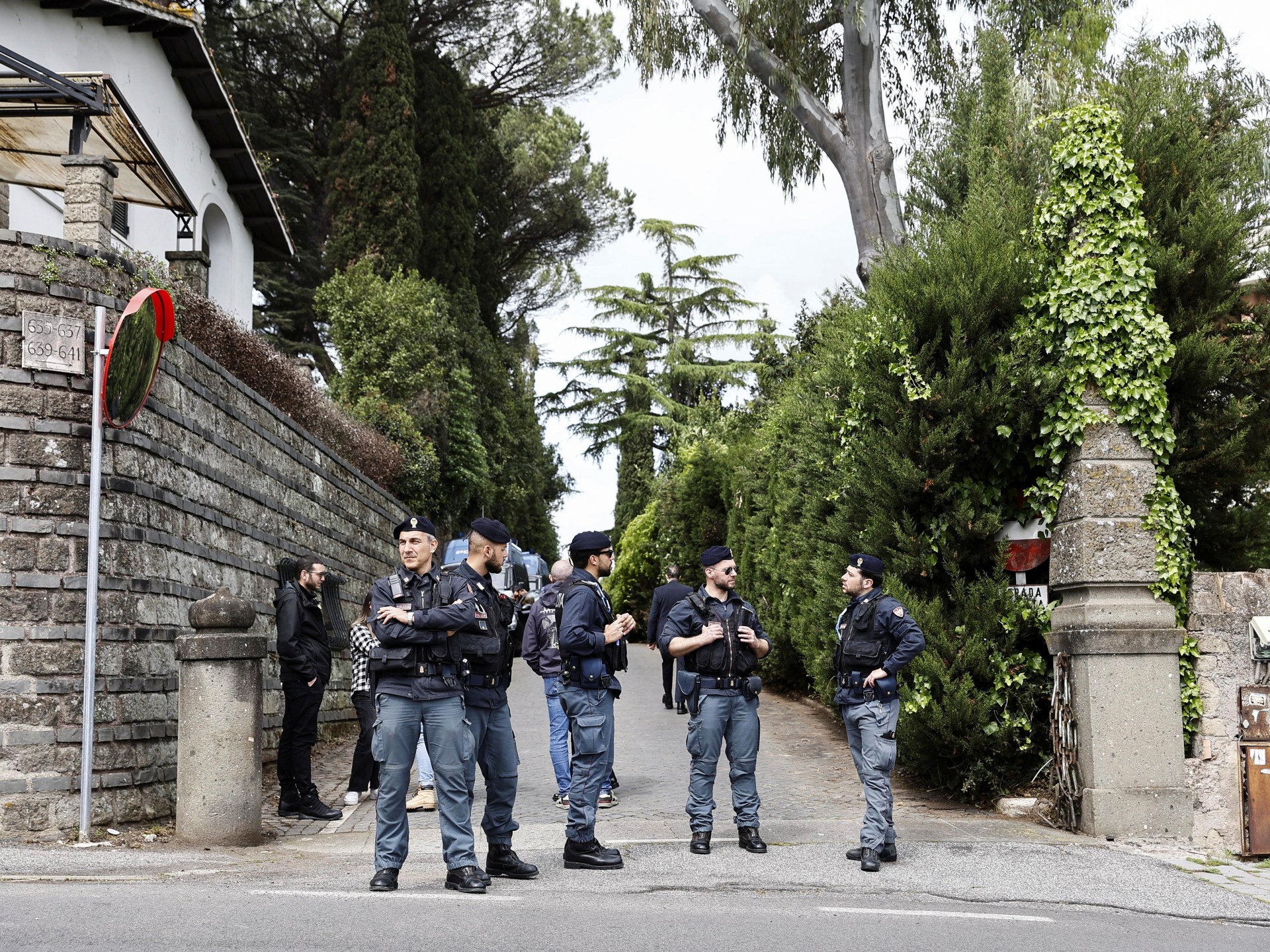
After technical talks, senior negotiators expected to reunite on April 26, according to Iran’s foreign ministry.
Iran and the United States have completed a second round of indirect nuclear negotiations, which Iran’s foreign minister has described as “constructive” and moving forward with further meetings planned in the coming week.
Abbas Araghchi and US Middle East envoy Steve Witkoff held four hours of indirect talks at Oman’s embassy in the Italian capital, Rome, on Saturday, according to Araghchi.
“We succeeded in reaching a better understanding on certain principles and goals,” the diplomat was quoted by the semiofficial Tasnim news agency as saying. “The negotiations were conducted in a constructive atmosphere and are progressing.”
There has been no readout yet of the meeting from the US side.
The delegations – led by Araghchi and Witkoff, a billionaire real estate executive whom US President Donald Trump has dispatched on numerous foreign policy missions – stayed in separate rooms in the embassy as Omani Foreign Minister Badr al-Busaidi shuttled messages between them, according to Iranian officials.
Iran’s Ministry of Foreign Affairs said the parties will hold more indirect, technical-level talks in the coming days, followed by another meeting with senior officials on April 26.
There were useful indirect talks today between Iran and the United States conducted by Oman Foreign Minister in a constructive atmosphere.
The two sides agreed to continue the indirect talks in few days at technical level to be followed by another round at their own level on…
— Esmaeil Baqaei (@IRIMFA_SPOX) April 19, 2025
“I hope that after next week’s technical sessions, we’ll be in a better position,” Araghchi said, according to Tasnim. “There’s no reason for excessive optimism or pessimism.”
‘Negotiations to pick up’
Al Jazeera’s James Bays, reporting near the Omani diplomatic compound in Rome, said the Iranian response was “very positive” for a delegation that “had seemed pretty negative going into the talks”.
Next week’s planned talks mean “the pace of negotiations is going to be picked up”, Bays said.
The latest meeting comes a week after Iran and the US came together in Muscat for their first high-level discussions since Trump in 2018 unilaterally abandoned a landmark nuclear accord signed and brokered by world powers in 2015.
The Iranians “are looking for a kind of consistency when it comes to the current talks”, Al Jazeera’s Tohid Asadi reported from Tehran.
Will US accept civilian nuclear programme?
Western governments, including the US, have long accused Iran of seeking to develop nuclear weapons – an allegation Tehran has denied, insisting its nuclear programme is solely for peaceful civilian use. On Wednesday, the head of the International Atomic Energy Agency, Rafael Grossi, said Iran was “not far” from possessing a nuclear weapon.
Grossi was also in Rome on Saturday meeting Italian Foreign Minister Antonio Tajani. Grossi’s nuclear watchdog would likely be central in verifying compliance by Iran should a deal be reached, as it did with the 2015 accord.
The US and Iran have had no diplomatic relations since shortly after Iran’s 1979 Islamic Revolution. After returning to office in January, Trump revived his “maximum pressure” sanctions campaign against Tehran, but in March, he sent a letter to Iranian Supreme Leader Ali Khamenei calling for renewed negotiations – while warning of military consequences if diplomacy fails.
“I’m not in a rush” to use force, Trump said on Thursday. “I think Iran wants to talk.”
On Friday, Araghchi said the US showed “a degree of seriousness” during the first round of talks but questioned Washington’s “intentions and motivations”.
Bays said the heart of the dispute remains whether Iran may maintain a civilian nuclear programme – or whether, as hardliners in Washington insist, it must dismantle its nuclear programme entirely.
“All they’ve been talking about last week in Muscat and here in Rome is a framework for the discussions and what they want to achieve,” Bays said. “They have not been discussing the nuclear detail, … and the devil is in the detail on these things.”
Middle East
Tunisian court hands opposition figures lengthy jail terms | Human Rights News
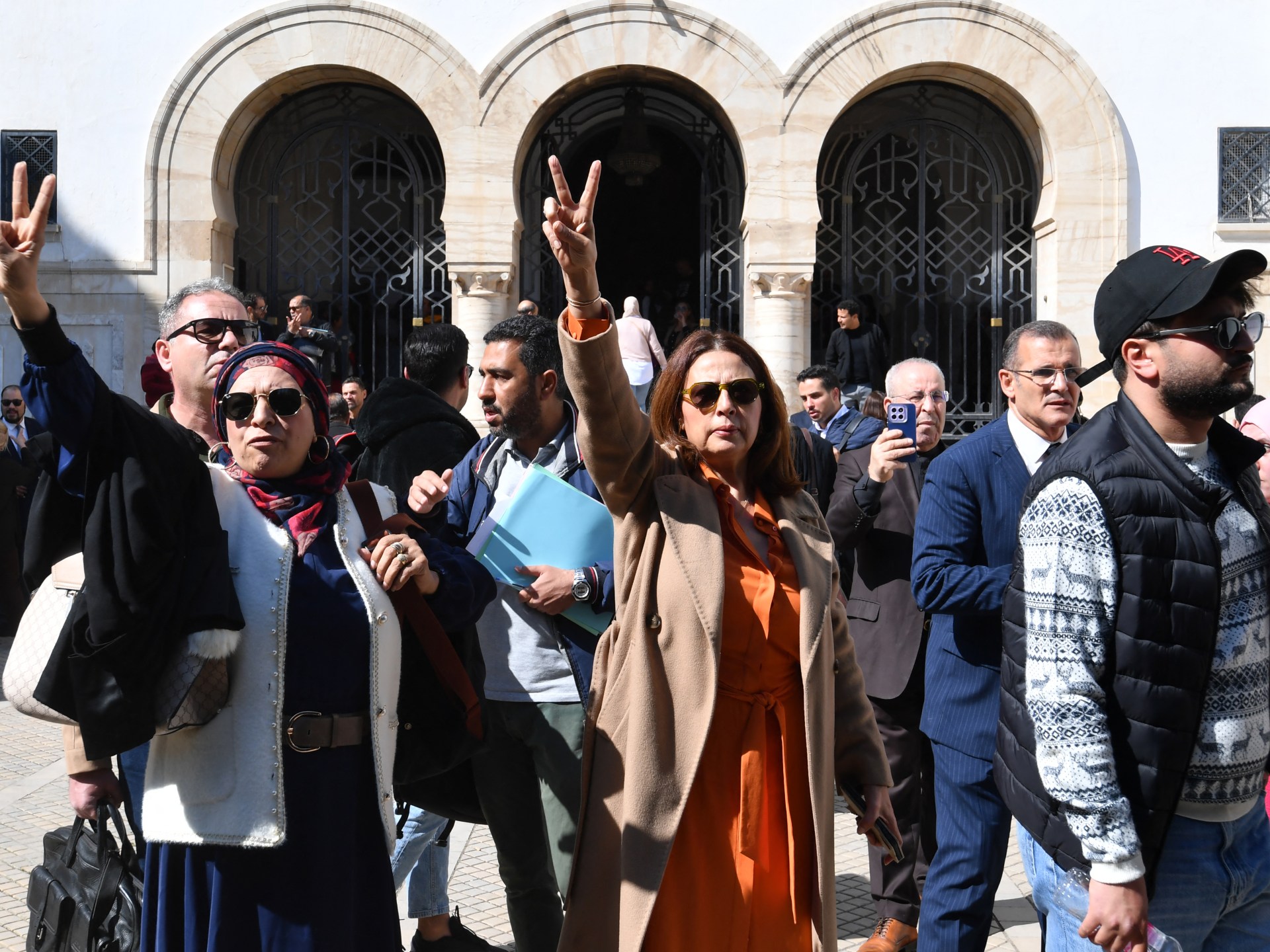
Dozens of defendants found guilty of “conspiracy against state security” and given sentences of 13 to 66 years.
Dozens of opposition figures in Tunisia have been handed lengthy prison terms on national security charges, according to state media.
A number of the North African country’s most senior opposition politicians were among 40 people sentenced on Saturday, including a former justice minister and diplomats. Critics insist the charges are trumped up and say they are symbolic of President Kais Saied’s authoritarian rule.
The TAP state news agency, quoting an unnamed judicial official, reported that the sentences ranged from 13 to 66 years.
An official from the anti-terrorism prosecutor’s office was quoted by Jawhara FM as saying the defendants were found guilty of “conspiracy against state security”, and “belonging to a terrorist group”, including liaising with “foreign powers” to undermine Saied’s rule.
The precise details of the trial remain cloudy, with the exact number of those on trial and the specific charges they face unclear.
It was not immediately clear either on Saturday whether all of the estimated 40 defendants in the case, which has become known as the “conspiracy case” and been running for two years or so, were found guilty and given prison terms.
About 20, many of whom have fled Tunisia, were sentenced in absentia, including the French intellectual, Bernard-Henri Levy, who is accused of being a conduit between defendants and foreign parties.
“President Saied has weaponised Tunisia’s judicial system to go after political opponents and dissidents, throwing people in arbitrary detention on flimsy evidence and pursuing them with abusive prosecutions,” Bassam Khawaja, deputy Middle East and North Africa director at Human Rights Watch, told Al Jazeera earlier this month.
On Friday evening, defence lawyers denounced the trial after the judge finished reading the accusations and began deliberation without hearing from either the prosecution or the defence.
“In my entire life, I have never witnessed a trial like this. It’s a farce, the rulings are ready, and what is happening is scandalous and shameful,” said lawyer Ahmed Souab.
Authorities have accused the defendants, who also include the former head of intelligence, Kamel Guizani, as well as media figures, of attempting to destabilise the country and overthrow Saied.
A number of the defendants – including Issam Chebbi, Ghazi Chaouachi and Jawhar Ben Mubarak – have been in custody since being detained in 2023. Chebbi is a member of the opposition National Salvation Front coalition.
“The authorities want to criminalise the opposition,” Chebbi said on Friday.
Saied rejects accusations that he is a dictator. He said in 2023 that the accused politicians were “traitors and terrorists” and that any judge who would acquit them would be an accomplice.
Saied consolidated his power in 2021 by dissolving the parliament and sacking the then-prime minister.
The opposition leaders involved in the case accused him of staging a “coup”.
They say the charges against them were fabricated to stifle the opposition and establish a one-man, repressive rule.
Some of Tunisia’s most prominent opposition leaders are already in prison.
Rached Ghannouchi, the head of Ennahdha, was arrested in April 2023 and sentenced to one year in prison on charges of incitement.
Earlier this year, he was handed a further 22-year sentence on charges that included plotting against state security. He was also sentenced to three years for accusations that his party received foreign contributions.
Middle East
Deadly, sombre Good Friday as 58 people killed in Israeli attacks on Gaza | Israel-Palestine conflict News
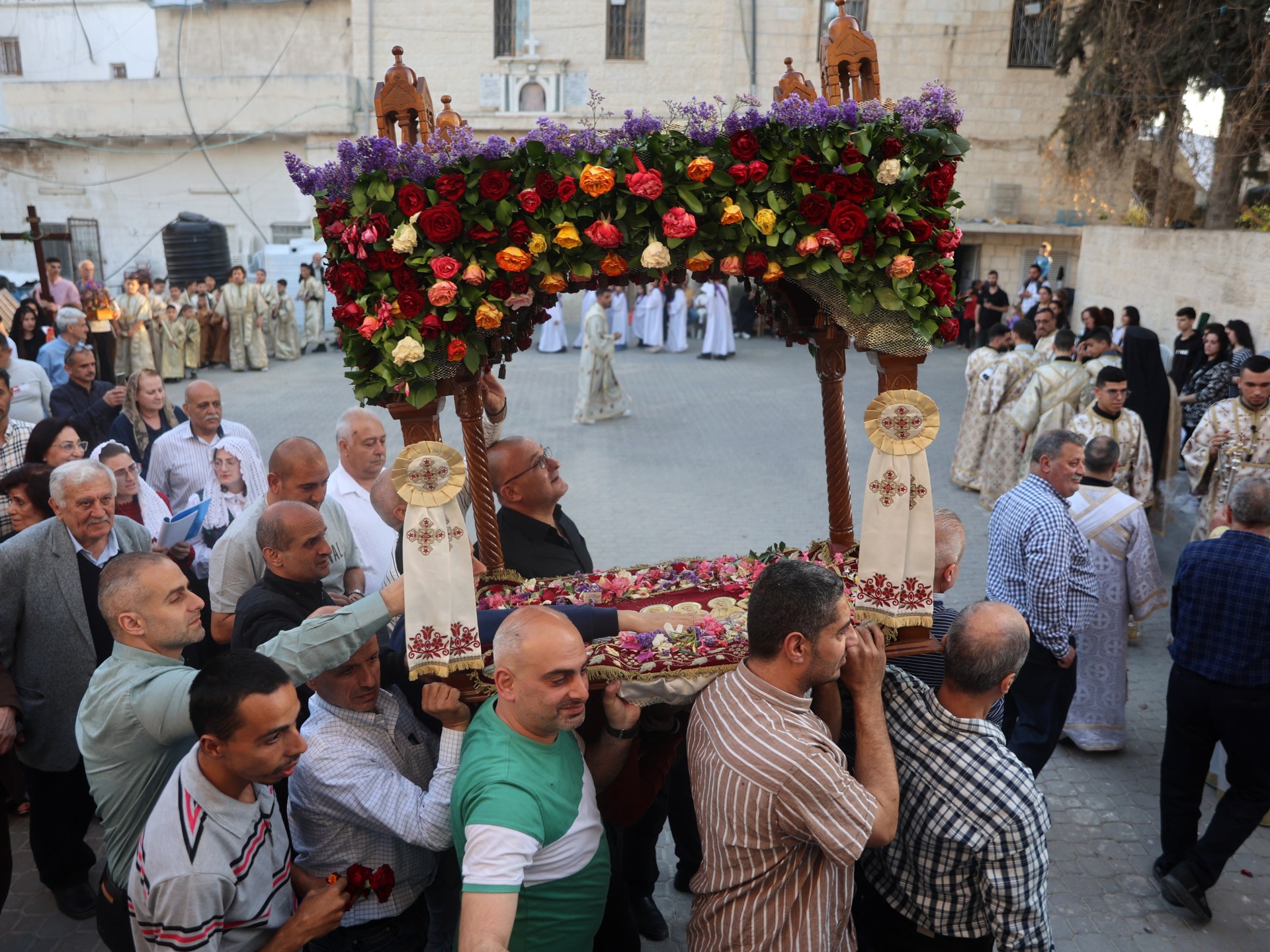
Palestinian Christians in Gaza and the occupied West Bank are holding temperate gatherings leading up to Easter.
Israeli strikes on Gaza have killed at least 58 Palestinians in one day as Christians mark Good Friday in the besieged and bombarded enclave.
More than half of the casualties were in Gaza City and northern Gaza, but deadly attacks took place across the Palestinian Strip, including in Khan Younis and Rafah in the south, medical sources told Al Jazeera on Friday.
The Israeli military said troops were operating in the Shaboura and Tal as-Sultan areas near Rafah, as well as in northern Gaza, where Israel has taken control of large areas east of Gaza City.
On Friday, Israel’s defence minister, Israel Katz, repeated that Israel intended to achieve its war aims.
“The [Israeli army] is currently working towards a decisive victory in all arenas, the release of the hostages, and the defeat of Hamas in Gaza,” he said in a statement.
Palestinian Christians in Gaza however continued to hold temperate gatherings leading up to Easter, amid the attacks.
Speaking to Al Jazeera from a local church, Ihab Ayyad said he used to gather with other congregants and visit his neighbours’ homes every year to celebrate.
“This year, we didn’t make the visits because of the total destruction everywhere, as the [Israeli] occupation forces have levelled most of the houses of my relatives and my neighbours,” Ayyad said. “A lot of my relatives and neighbours were martyred or displaced in different places. We haven’t celebrated because we feel very sad.”
Ramez al-Soury said he used to travel out of Gaza to Bethlehem or Jerusalem for the holy week.
But now, an “atmosphere of war” permeates Gaza. “The death smell is everywhere. The smell of killing and destruction is putting a lot of pressure on us,” he said.
Reporting from Gaza City, Al Jazeera’s Hani Mahmoud said the Christian community is holding onto their faith and has gathered at one of the oldest churches in the world in Gaza – not in defiance but in devotion.
“In Gaza, Good Friday is the power of faith and the quiet strength of those who still believe in peace even when the world around them is nothing but a stage filled with violence and death,” he said.
West Bank settler violence
Rituals to mark Good Friday and Easter have also been held in the occupied West Bank.
There are about 50,000 Palestinian Christians in the region. Israeli authorities, however, require them to acquire permits to travel to Jerusalem, making it difficult for many to join those celebrations.
Moreover, Israeli settlers and the military also attacked Palestinian people on their land in the town of Biddya, in the Salfit governorate in the occupied West Bank, according to Al Jazeera Arabic on Friday, tempering the celebrations.
The Palestine Red Crescent said that a Palestinian was injured in the attack.
Local sources also told Al Jazeera Arabic that dozens of settlers stormed Jabal al-Urma, a hill in the town of Beita in the Nablus governorate, under the protection of the Israeli army.
Settlers are Israeli citizens who live illegally on private Palestinian land in the occupied West Bank and East Jerusalem.
Israeli settler and military violence has soared across the West Bank – particularly in the north of the territory – since the war on Gaza began in October 2023. The United Nations has said this violence has displaced roughly 40,000 Palestinians since Israel began a new military operation in the occupied West Bank in January.
-

 Lifestyle1 day ago
Lifestyle1 day agoSweets from the sky! A helicopter marshmallow drop thrills kids in suburban Detroit
-

 Sports2 days ago
Sports2 days agoNY Rangers’ Panarin, MSG reportedly made settlement payments after employee made sexual assault allegations
-

 Europe1 day ago
Europe1 day agoLive updates: Trump news, Ukraine peace talks, US immigration, tariffs and university funding
-

 Education1 day ago
Education1 day agoHarvard’s battle with the Trump administration is creating a thorny financial situation
-

 Sports1 day ago
Sports1 day agoAaron Rodgers ‘not holding anybody hostage’ as he decides his future, retirement a possibility
-

 Conflict Zones22 hours ago
Conflict Zones22 hours agoTrump says US may ‘pass’ on helping end war if Russia, Ukraine resist deal | Russia-Ukraine war News
-

 Sports2 days ago
Sports2 days agoLos Angeles Rams honor first responders by conducting 2025 NFL Draft from Los Angeles Fire Department
-
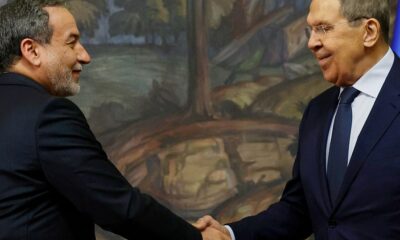
 Africa1 day ago
Africa1 day agoIran seeks Russia’s support for its nuclear talks with US




